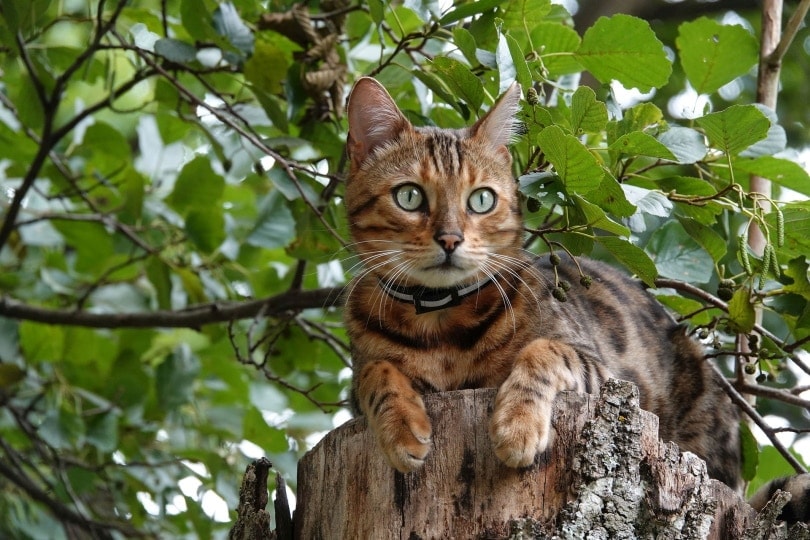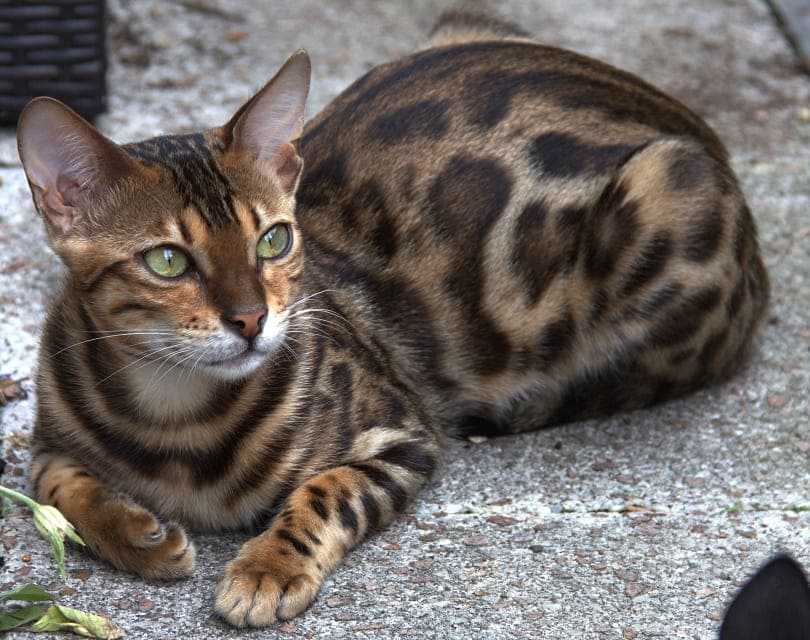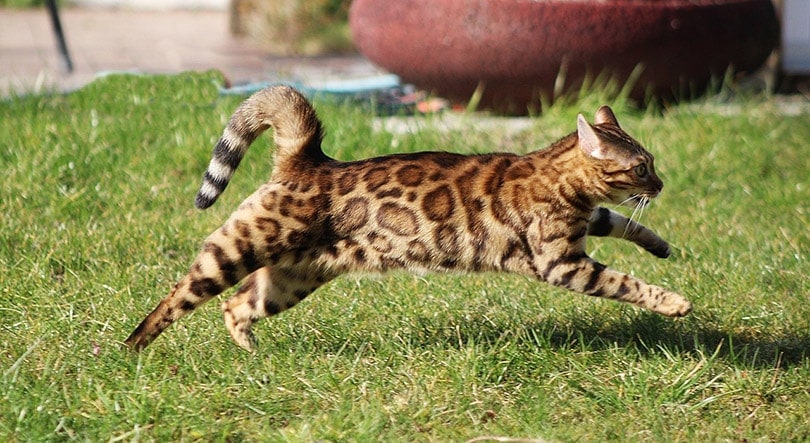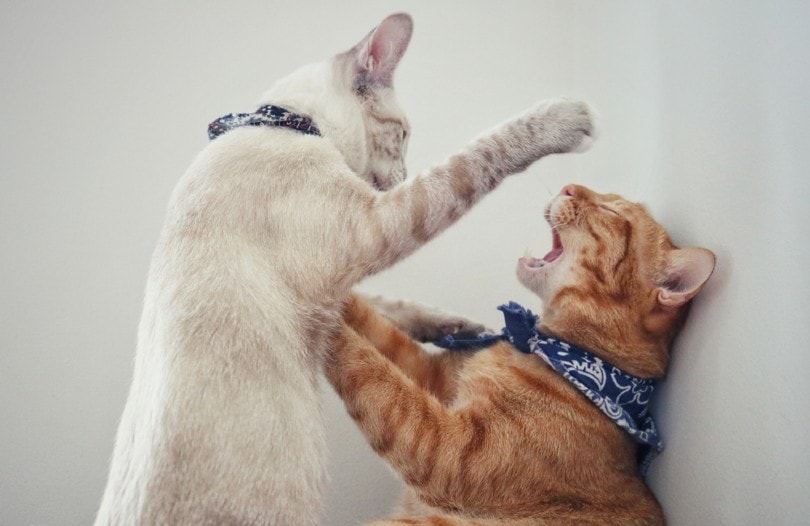Why Are Bengal Cats Illegal in Some States & Countries? Facts & FAQ
Updated on

If you’re thinking about owning a Bengal, you might be surprised to learn that Bengals cats are illegal in certain regions because they’re considered exotic animals. You can trace the breed’s perceived “exotic” status to its short history. But before diving into specific laws, let’s talk about how Bengal cats came to exist.
The History of the Bengal Cat Breed
The first Bengal cat was born in the early 1960s when a domestic cat mated with an Asian leopard cat. Most of today’s Bengals can trace their lineage to the 1980s when breeding began in earnest.
A kitten with one Asian leopard cat parent is called an “F1” Bengal. These felines are considered hybrids and won’t make good companions for the average pet owner. An F1 female bred with a domestic male cat will produce “F2” Bengals, and the offspring of an F2 and a domestic cat is an “F3” kitten.
The cat community often refers to the first three generations of a Bengal lineage as the foundation generations. Any subsequent generations are Bengals—domestic cats with an exotic appearance.

What States or Countries Are Bengal Cats Illegal in?
Federal and state laws concerning Bengals can change at any time. That makes it impossible to maintain an up-to-date list of who can own one of these cats.
If you live in the U.S., this list of state laws regarding exotic animals is a good starting point.
Is a Bengal Cat Considered Exotic?
It depends on who you ask! The International Cat Association has recognized Bengals since 1986. The organization considers F1, F2, and F3 as hybrid Foundation Bengals. Any Bengals that are F4 or later are considered purebred.

Are Bengal Cats Dangerous?
While they may not be the cuddliest lap cats, Bengals are known for their affectionate and friendly nature. There is no research to prove that Bengals are any more dangerous than other breeds. All cats have the potential to bite, especially if they are hurt, scared, or acting on their prey drive.
Unfortunately, a purebred Bengal may bear the burden of being associated with their F1–F3 ancestors, who often do not act like domestic cats. These hybrid cats are used for breeding purposes but do not make good pets.
Why Are Bengal Cats Illegal in Hawaii?
If you’re planning a Hawaiian vacation, you’ll need to make other arrangements for your Bengal. The cat is not welcome in the Aloha State, and news reports state that the reason for banning Bengals is two-fold.
Toxoplasmosis can infect Bengals, as well as all other domestic felines. This disease can spread to waterways via a cat’s feces. Hawaii is concerned with Toxoplasmosis because it is a leading cause of Hawaiian monk seal deaths.
The state also claims that feral cats are an invasive species and a threat to the native bird population. However, any breed of cat has the potential to get loose, and it’s unclear why Hawaii allows other cat breeds but not Bengals.

Why Are Bengal Cats Illegal in NYC?
If you dream of living in the Big Apple, you can’t take your Bengal with you. The city prohibits “most farm, wild, and exotic animals.” All generations of Bengals fall under the “exotic” category.
Want to Own a Bengal? Do This first!
You can avoid the heartache of surrendering a Bengal by doing some research before you buy or adopt. If you live in the U.S., follow these steps to find out if you can legally own a Bengal where you live.
1. Check Your State Laws
In many states, the Fish and Wildlife Department handles exotic animal regulations. If they don’t have the answer about Bengals, they can direct you to the agency that does.
Don’t expect a breeder to know the most current laws, especially if they live in another state. They may not have the most recent information, and unfortunately, unscrupulous buyers may be eager to make a fast sale without regard to the law.

2. Find Out Your County Regulations
Individual counties can prohibit certain animals, even if the state permits them. You’ll need a copy of your county’s code of ordinances that lists any banned animals.
3. Speak With Your Local Municipal Clerk
Just like counties, individual municipalities can ban certain animals. After you know your state and county laws, your last stop will be your city or town clerk.

This research can seem like a lot of work, but it’s better to know your laws ahead of time.
Conclusion
While the idea of owning a Bengal cat might seem like a good idea, it’s in your best interest to check if they’re allowed in your state or country first. Many places consider Bengal cats to be exotic animals, and there are a myriad of other reasons why one wouldn’t be allowed to live with you. At the end of the day, finding out the most up-to-date and accurate information is on you, not the breeder. So, ensure you do thorough research before bringing one of these animals into your home.
See also:
Featured Image Credit: Uschi Dugulin, Pixabay













